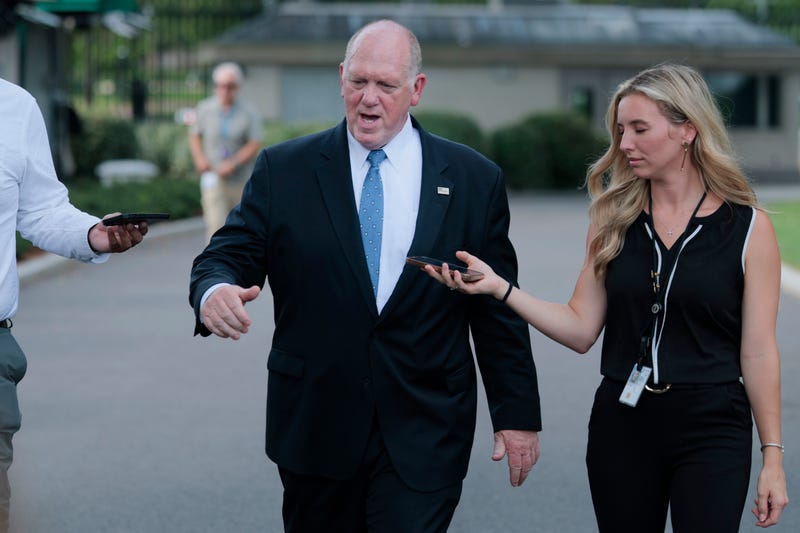
NEW YORK (BLOOMBERG) -- Tom Homan, the border czar for President Donald Trump, said that immigration agents will ramp up arrests in New York City as part of a broader crackdown on sanctuary jurisdictions that limit cooperation with federal authorities.
“We’re going to be in New York City,” Homan told reporters at the White House on Monday. “President Trump said it two weeks ago — we’re going to double down and triple down on sanctuary cities. Why? Not because it’s a blue city or a blue state, but because we know that’s where the problem is.”
His remarks came just days after New York City mayoral frontrunner Zohran Mamdani, a state assemblyman from Queens, vowed to sever all ties between city agencies and ICE if elected in November.
Mamdani, a Democratic socialist, has called for blocking ICE access to municipal buildings, ending data-sharing with federal officials and expanding legal aid for immigrants. Homan has previously warned that if Mamdani tries to interfere with ICE operations, it would be “game on.”
While recent immigration raids in Los Angeles have involved visible sweeps of street vendors and day laborers, enforcement in New York has remained more discreet, often focused on arrests at immigration courts during routine check-ins. That approach is about to shift, Homan said.
“If they don’t let us arrest the bad guy who comes to jail, we’re going to arrest him in the community,” he said. “We’re going to increase community operations.”
More than 1,900 people have been arrested by federal immigration authorities in New York City since Trump took office — an 11% increase from the same period last year, according to figures obtained by the Deportation Data Project and analyzed by Bloomberg. That compares to far higher increases in other major cities: arrests rose 69% in Los Angeles, 57% in Chicago and 161% in Miami.
New York is one of dozens of US sanctuary cities that restrict information-sharing between local police and federal immigration agents. Homan criticized the New York’s refusal to honor ICE detainer requests — formal notices asking jails to hold individuals until federal agents arrive.
“We know they’re releasing public safety threats and national security threats to the streets every day because they don’t honor our detainers,” he said. “We don’t have that problem in Florida, where every sheriff in the state is working with us.”
New York Mayor Eric Adams, a Democrat who is running for re-election as an independent, has come under scrutiny for attempting to reinstate federal immigration authorities at the Rikers Island jail complex — a facility from which ICE was effectively barred in 2014.
Homan’s warnings comes as federal immigration resources are set to expand significantly. In the budget bill signed by Trump last week, ICE was allocated $30 billion — three times its annual budget — to hire 10,000 new officers and expand detention operations as part of a broader $150 billion immigration and border-control funding package.
Meanwhile, more jurisdictions are signing up for 287(g) agreements — which allow local and state law enforcement to increase ICE collaboration. In Florida, which has more 287(g) deals than any other state, Republican Governor Ron DeSantis last week opened a remote detention site — nicknamed “Alligator Alcatraz” — in a swampy area. It was built in about a week using tents and trailers to hold immigration detainees.
